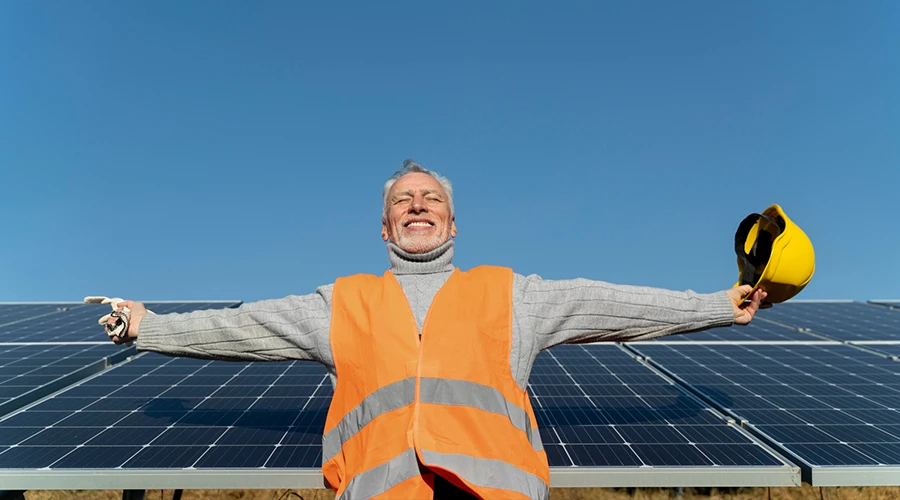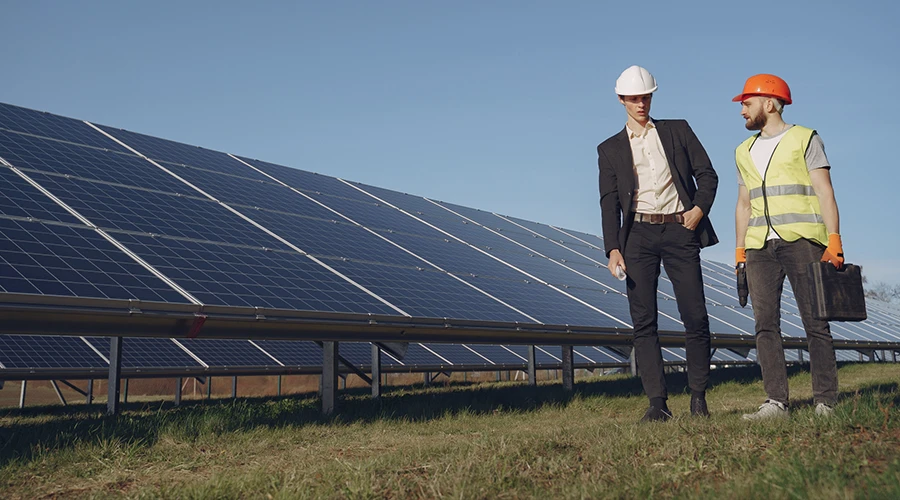Thinking about going solar but not sure where to start? You’re not alone. No doubt your first Google search was solar panels Sunshine Coast. So, whether you’re curious about costs, wondering how many panels you’ll need, or just want to know what happens if it’s cloudy… here are the questions most homeowners ask before making the switch.
It’s your no-nonsense guide to the most common solar panel questions and it’s geared especially to homes right here on the Sunshine Coast.
Are Solar Panels Really Worth It in Queensland?
Absolutely. Queensland has some of the best solar exposure in the world. That means even a modest rooftop system can cut your power bills significantly. Depending on the size of the system, it’s not unusual for savings of 50–80% depending on your usage and setup. Some people don’t pay a cent for power (not even for daily usage because of the amount they export to the grid).
With energy prices continuing to rise and federal incentives still in place, many systems pay for themselves in 3–5 years (mileage may vary, OK?).
Plus, if you install a battery system, you can store power and use it at night. I really recommend getting a battery if you can afford it. It definitely makes you more energy independent.
You can also use the battery power at the end of the day when grid power is at its most expensive. There’s nothing like reducing your grid reliance.
How Many Solar Panels Do I Need?
It depends on your energy use, roof space, and system goals. A standard Sunshine Coast household might install a 6.6kW system, which is typically around 16–18 panels.
If you have a bigger roof, higher usage, or want to future-proof for battery storage or EV charging, you might go larger. You could level up to 10kW or beyond. Even 20kW+.
Your installer will assess your bills and property to recommend the best size. (Call us at SWIFT Solar and we’ll sort you out!)
What If It’s Cloudy or Raining?
Solar panels still work on cloudy days. They just cannot work at full capacity. You can get 10–30% of peak output depending on conditions.
It’s comforting to know that in all the years I’ve been in the solar game (and beyond), it’s extremely rare to get days with really low energy production. Here on the Sunny Coast, if you get the right sized system you’ll be laughing.
Anyway, there’s a reason why your system is tied to the grid: on low-sun days, you draw power from the network like usual. If you have a battery installed, it’ll kick in automatically when solar production drops.
How Long Do Solar Panels Last?
Most solar panels come with a 25-year performance warranty, and many systems keep working well beyond that. Inverters usually last 10–15 years and may need replacing once during the life of your system.
Routine maintenance is also recommended to help keep your system performing at its best. This is where you have the panels cleaned and check for changing shade conditions. The condition of your system is also partly determined by the two angles.
1) the angle the panels are oriented with respect to the sun and whether they face North, East or West. And
2) the tilt angle of the panel with respect to the roof. I have talked about this in another of my articles on this website. Check it out here.
Do I Need a Battery?
Not necessarily. You can install solar panels without a battery and still save a lot. In fact, most systems on the Sunshine Coast don’t include a battery at first, due to the added cost.
That said, batteries are becoming more affordable and make sense if you:
- Use significant power at night (and that’s most of us, right?)
- Want protection from blackouts
- Want to store excess solar for self-use
Many systems are “battery ready”, so you can add one later if you choose.
How Do I Claim Government Rebates?
In most cases, the federal STC (Small-Scale Technology Certificate) rebate is applied upfront. It’s your installer who generally takes care of it and you pay a lower system price. It’s basically how you can realise savings from the time you sign up.
There are no ongoing forms or applications to worry about. Just make sure your installer is CEC-accredited so the rebate applies.
Will Solar Panels Increase My Home’s Value?
The short answer is now “yes, mostly”. It’s especially the case if your system is newer, properly sized, and professionally installed. Buyers are increasingly looking for homes with lower running costs and sustainable upgrades.
It’s not guaranteed to raise your sale price, but it can make your property more attractive in a competitive market.
What’s the Next Step?
If you’re solar-curious, the best next step is to speak with a local installer who can review your energy use, roof space, and goals.
At SWIFT Solar & Electrical, we help Sunshine Coast homeowners design solar systems that suit their lifestyle and budget — no pushy sales, just straight answers.
Call us on 0422 251 734 today and let’s see if solar is the right move for your home. Hint: it probably is. 😉



